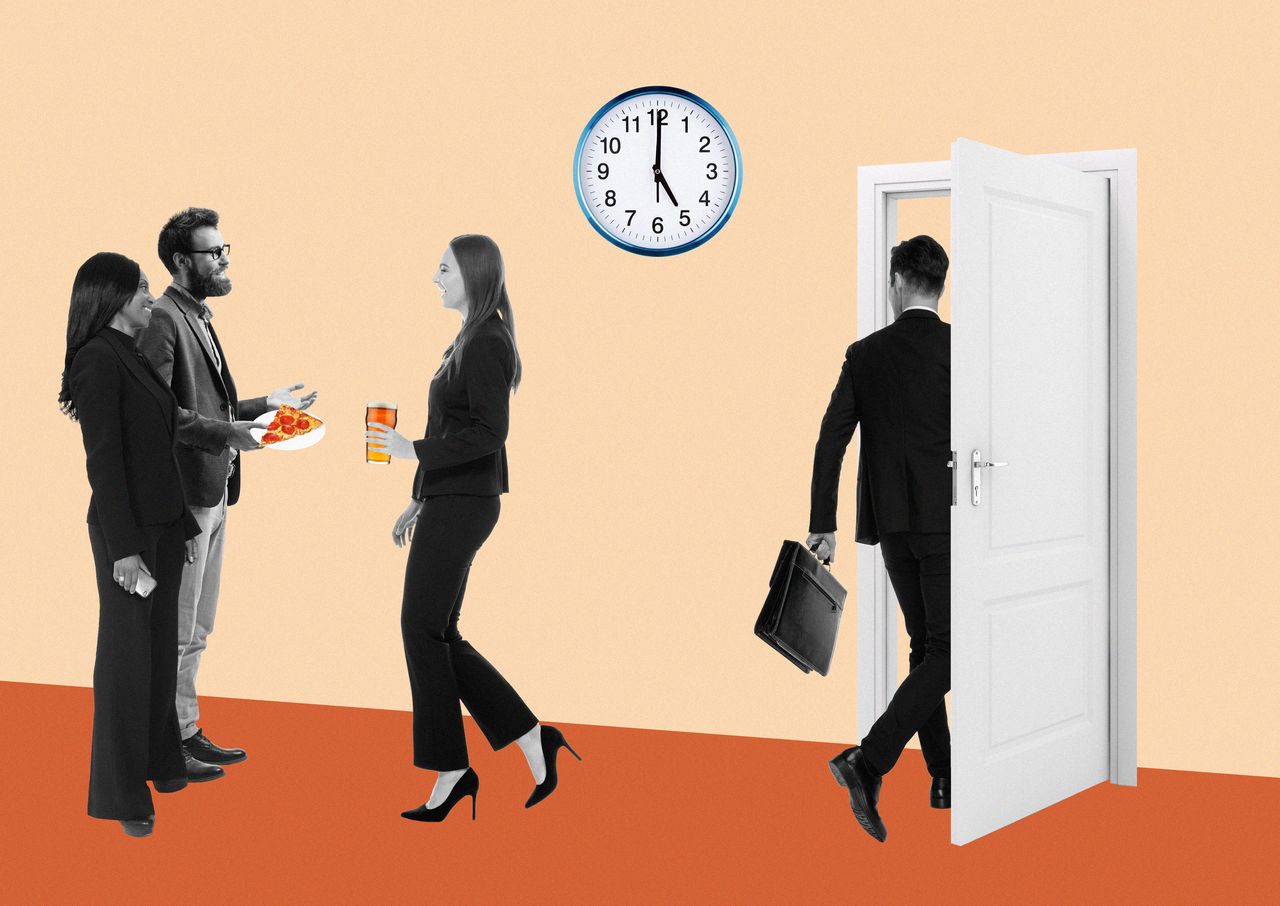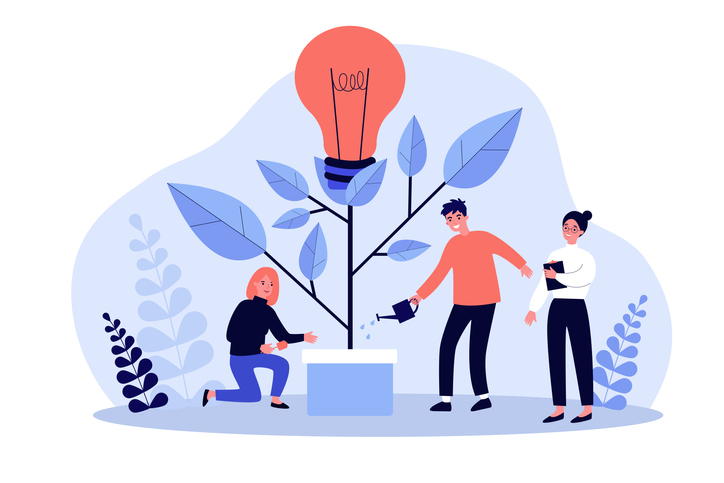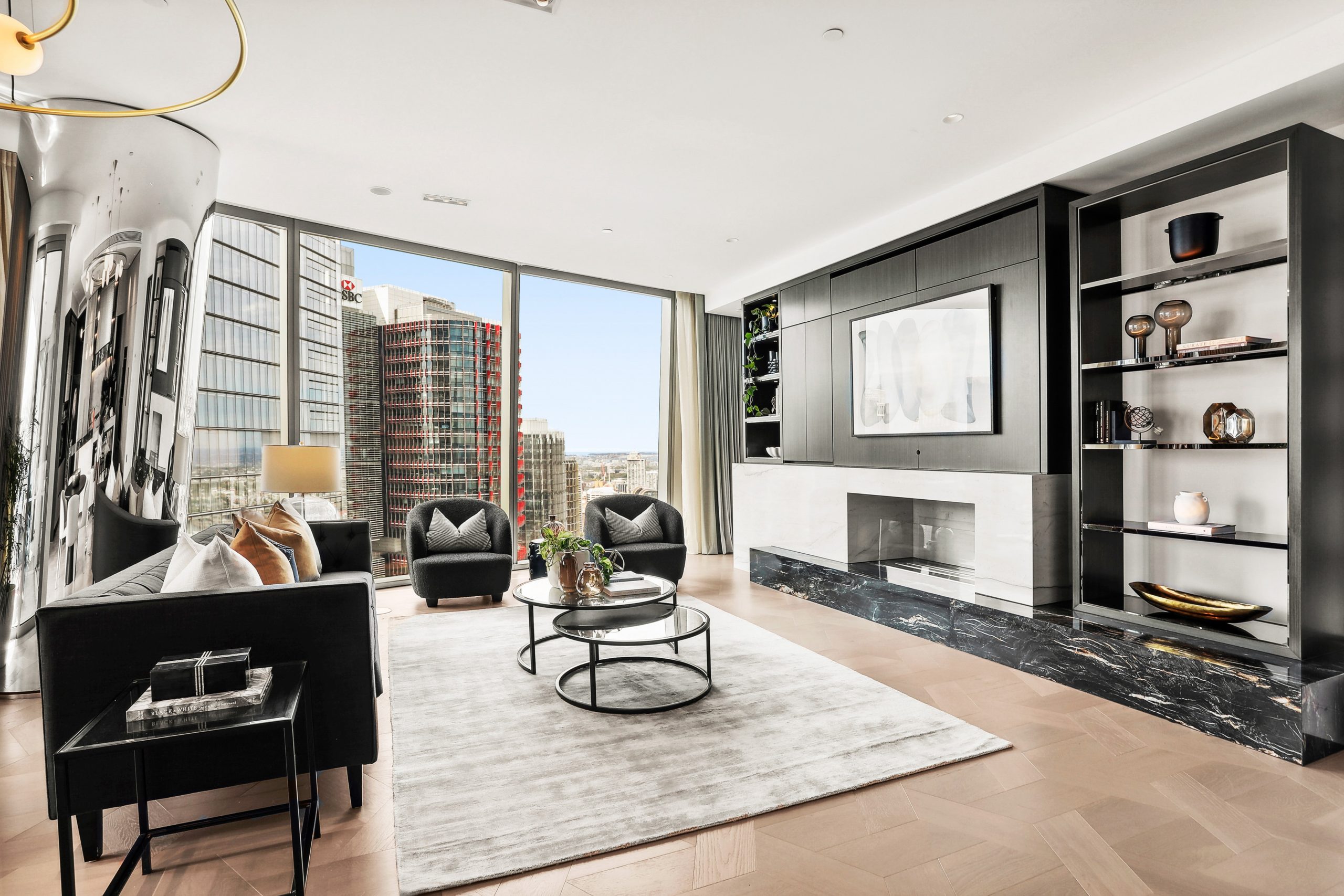5:01 and Done: No One Wants to Schmooze After Work
Office happy hours, client dinners and other after-hours work gatherings lose their lustre as more people feel the pull of home
Patience for after-hours work socialising is wearing thin.
After an initial burst of post pandemic happy hours, rubber chicken dinners and mandatory office merriment, many employees are adopting a stricter 5:01-and-I’m-done attitude to their work schedules. More U.S. workers say they’re trying to draw thicker lines between work and the rest of life, and that often means clocking out and eschewing invites to socialise with co-workers. Corporate event planners say they’re already facing pushback for fall activities and any work-related functions that take place on weekends.
“The flake-out rate is so much higher at events now,” says Gretchen Goldman, a research director in Takoma Park, Md.
This summer Goldman sent an invite to 100 colleagues for casual after-work drinks at some picnic tables just outside the office as a goodbye party. She was taking a new job with the federal government. Fewer than 10 showed up.
“I guess people are just busy,” she says.
The pandemic altered eating and drinking habits, and pandemic puppies, now fully grown dogs, have to be walked on a schedule. With fewer people back in offices, there are fewer impromptu happy hours and a lack of interest in staying out late with colleagues, some bosses and workers say.
Andy Challenger oversees employees who participate in the fantasy football league at his outplacement firm, Challenger, Gray & Christmas. When some of them floated the same game plan as prior years—an in-office pizza party that goes past 11 p.m. as everybody drafts their favourite players—the pushback was swift. This season, the pizza arrived at 4:30 p.m. and everyone was finished and out of the office by 6 p.m.
“Normally that would have been the starting time,” he says.
For decades, an unspoken rule of office culture has been that much of work happens outside the 9-to-5 window. Getting ahead often requires being known outside the building and having organisational allies—the type of networking that’s helped by showing up for dinner with the boss and getting relaxed face time with co-workers at happy hours, says Jon Levy, a New York City-based consultant who advises organisations on connection and culture.
Now, even the go-getters are saying no to after-hours schmoozing opportunities.
The thinking is: “That 20th happy hour isn’t going to produce anything better for me,” Levy says.
People are less jazzed about eating out once they are home, and many got pretty good at making dinner during the pandemic, says David Portalatin, food industry adviser at Circana Group, a market research firm.
“When the consumer stretches and builds new muscles, they don’t abandon those behaviours completely,” he says.
In the past year, U.S. consumers had 264 million restaurant dinners after leaving work, which is down 43% from 2019 levels, according to Circana. And reservations are now earlier: In 2023, 26% of after-work restaurant dinners happened before 6 p.m., compared with 21% in 2019.
Barbara Martin hosts bimonthly evening soirees for clients of her marketing firm, Brand Guild. Traditionally, cocktails start flowing around 6:30 p.m. and the mingling could last until 9 o’clock—or beyond. But last Thursday she pulled the start time forward to 5:30 p.m. sharp.
“‘I’d love to come to these if you could do them earlier,’” Martin says she’s heard again and again this summer. “Nobody wants to overbook themselves until 10 p.m. on a weeknight anymore.”
Attitudes don’t appear to be changing as the summer vacation season ends. Kay Ciesla is helping organise an all-staff gathering for 80 people at the American Immigration Lawyers Association, the Washington, D.C., nonprofit where she works as a governance executive. She is considering an ax-throwing theme, and serving finger foods and cocktails.
“I’m already getting pushback,” she says of spending precious time that bleeds into personal hours on team building. Due to scheduling conflicts the group can’t gather until December. One employee voiced concern that the socialising could turn into a superspreader event ahead of Christmas travel.
Doug Quattrini, an event planner in the Philadelphia area, has already booked six Christmas parties. What’s different this year, he says, is that most are on weekdays, in the office—and end at 8 p.m.
“Nobody wants to take up people’s Fridays, Saturdays and Sundays,” says Fausto Pifferrer, co-owner of Blue Elephant Catering in Saco, Maine, near Portland, which has booked several office holiday parties for Monday through Thursday.
Younger Americans are drinking less. The share of people between 18 and 34 who said they “ever” drink alcohol has fallen to 62% from 72% two decades ago, according to Gallup data.
Caroline Wong, the chief strategy officer at Cobalt, a cybersecurity company in San Francisco, quit drinking in her early 30s and tries to plan social gatherings sans alcohol. A team off-site next month will be a tour of waterfalls near Portland, Ore. She’s noticed things wrap up earlier when there’s no drinking involved.
“It’s like, ‘You know what, we hung out for 90 minutes. We’re good and I’ll see you tomorrow,’” Wong says. “I think there’s something awesome about that.”
 Copyright 2020, Dow Jones & Company, Inc. All Rights Reserved Worldwide. LEARN MORE
Copyright 2020, Dow Jones & Company, Inc. All Rights Reserved Worldwide. LEARN MORE
This stylish family home combines a classic palette and finishes with a flexible floorplan
Just 55 minutes from Sydney, make this your creative getaway located in the majestic Hawkesbury region.
Continued stagflation and cost of living pressures are causing couples to think twice about starting a family, new data has revealed, with long term impacts expected
Australia is in the midst of a ‘baby recession’ with preliminary estimates showing the number of births in 2023 fell by more than four percent to the lowest level since 2006, according to KPMG. The consultancy firm says this reflects the impact of cost-of-living pressures on the feasibility of younger Australians starting a family.
KPMG estimates that 289,100 babies were born in 2023. This compares to 300,684 babies in 2022 and 309,996 in 2021, according to the Australian Bureau of Statistics (ABS). KPMG urban economist Terry Rawnsley said weak economic growth often leads to a reduced number of births. In 2023, ABS data shows gross domestic product (GDP) fell to 1.5 percent. Despite the population growing by 2.5 percent in 2023, GDP on a per capita basis went into negative territory, down one percent over the 12 months.
“Birth rates provide insight into long-term population growth as well as the current confidence of Australian families,” said Mr Rawnsley. “We haven’t seen such a sharp drop in births in Australia since the period of economic stagflation in the 1970s, which coincided with the initial widespread adoption of the contraceptive pill.”
Mr Rawnsley said many Australian couples delayed starting a family while the pandemic played out in 2020. The number of births fell from 305,832 in 2019 to 294,369 in 2020. Then in 2021, strong employment and vast amounts of stimulus money, along with high household savings due to lockdowns, gave couples better financial means to have a baby. This led to a rebound in births.
However, the re-opening of the global economy in 2022 led to soaring inflation. By the start of 2023, the Australian consumer price index (CPI) had risen to its highest level since 1990 at 7.8 percent per annum. By that stage, the Reserve Bank had already commenced an aggressive rate-hiking strategy to fight inflation and had raised the cash rate every month between May and December 2022.
Five more rate hikes during 2023 put further pressure on couples with mortgages and put the brakes on family formation. “This combination of the pandemic and rapid economic changes explains the spike and subsequent sharp decline in birth rates we have observed over the past four years,” Mr Rawnsley said.
The impact of high costs of living on couples’ decision to have a baby is highlighted in births data for the capital cities. KPMG estimates there were 60,860 births in Sydney in 2023, down 8.6 percent from 2019. There were 56,270 births in Melbourne, down 7.3 percent. In Perth, there were 25,020 births, down 6 percent, while in Brisbane there were 30,250 births, down 4.3 percent. Canberra was the only capital city where there was no fall in the number of births in 2023 compared to 2019.
“CPI growth in Canberra has been slightly subdued compared to that in other major cities, and the economic outlook has remained strong,” Mr Rawnsley said. “This means families have not been hurting as much as those in other capital cities, and in turn, we’ve seen a stabilisation of births in the ACT.”
This stylish family home combines a classic palette and finishes with a flexible floorplan
Just 55 minutes from Sydney, make this your creative getaway located in the majestic Hawkesbury region.






















